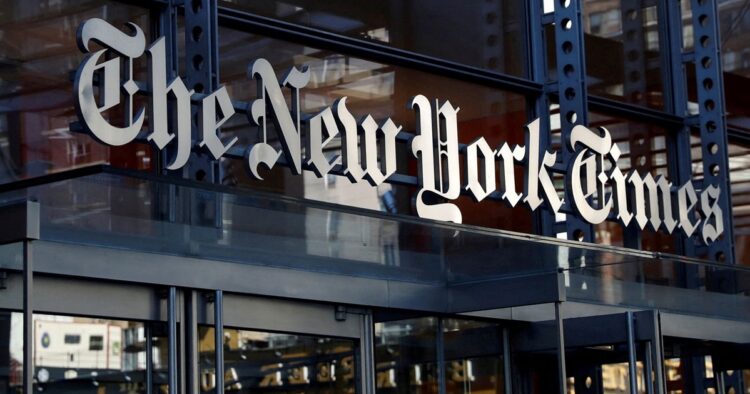In a groundbreaking move, The New York Times has filed a lawsuit against OpenAI and Microsoft for alleged copyright infringement. The lawsuit, filed in Federal District Court in Manhattan, accuses the companies of using millions of articles from The Times to train their automated chatbots, which now compete with the news outlet as a source of information.
The lawsuit does not specify a monetary demand but asserts that the defendants should be held accountable for “billions of dollars in statutory and actual damages.” Additionally, it calls for the destruction of any chatbot models and training data utilizing copyrighted material from The Times.
The Times claims it had raised concerns with Microsoft and OpenAI in April, aiming for an amicable resolution through discussions about a possible commercial agreement and technological safeguards. However, these talks failed to produce a resolution, leading to the legal action.
OpenAI, valued at over $80 billion, expressed surprise and disappointment at the lawsuit, emphasizing their commitment to respecting the rights of content creators. Microsoft declined to comment on the case.
The lawsuit raises questions about the legal implications of using copyrighted material to train generative AI technologies, such as ChatGPT. It could have significant ramifications for the news industry, as media organizations grapple with the unauthorized use of their content by AI systems.
Concerns about uncompensated use of intellectual property by AI systems have surfaced across various creative industries. High-profile cases include actress Sarah Silverman’s lawsuits against Meta and OpenAI for using her memoir as training text, and Getty Images suing an AI company for unauthorized use of copyrighted visual materials.
The Times argues that OpenAI and Microsoft are “free-riding” on its substantial investment in journalism, using its content without payment to create AI products that compete with and divert audiences from the newspaper.
The lawsuit also highlights the potential damage to The Times’s brand due to AI “hallucinations,” where chatbots provide incorrect information falsely attributed to the source. This misinformation could erode trust in the newspaper’s credibility.
As the legal battle unfolds, it could shape the legal landscape for generative AI technologies and prompt a broader discussion on copyright issues in the era of artificial intelligence. The outcome may have lasting implications for both content creators and AI companies alike.

















Comments